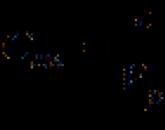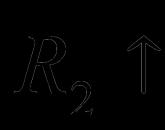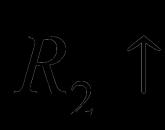Article 242 of the Labor Code of the Russian Federation full liability. Theory of everything
Complete material liability of the employee is his obligation to compensate the direct actual damage caused to the employer in full.
Liability in the full amount of the damage caused may be imposed on the employee only in cases provided for by this Code or other federal laws.
Employees under the age of eighteen bear full liability only for intentionally causing damage, for damage caused in a state of alcoholic, narcotic or other toxic intoxication, as well as for damage caused as a result of a crime or administrative offense.
Commentary on Art. 242 of the Labor Code of the Russian Federation
1. For damage caused to the employer, the employee may bear full financial responsibility - without any limits and restrictions, but only in cases provided for by the Labor Code of the Russian Federation. and other federal laws (see the commentary to Articles 243-244 of the Labor Code of the Russian Federation).
2. The possibility of bringing employees under the age of 18 to full liability is limited to the cases listed in Part 3 of Art. 242 of the Labor Code of the Russian Federation.
Second commentary on Article 242 of the Labor Code
1. Part 1 of Art. 242 has been corrected. It added an indication that the employee compensates the employer for direct actual damage. This addition is very significant. It plays a protective role for the employee, not allowing him to recover lost profits, i.e. those amounts (income) that the employer could have received, but did not receive due to the employee's improper behavior. This distinguishes the material liability of an employee under labor law from compensation for property damage under civil law.
The inclusion of the word "other" in the text of the last part of this article does not play a significant role.
2. Full liability is an exception to the general rule of Art. 241 on the limits of an employee's material liability and therefore can take place only in cases expressly provided for by the Code (see Article 243) or other federal laws.
So, in accordance with the Federal Laws "On Communications" of January 20, 1995 (Article 37) (SZ RF. 1995. N 8. Art. 600) and "On Postal Communication" of July 17, 1999 N 176- Federal Law (Art. 34) (SZ RF. 1999. N 29. Art. 3697) telecom operators (employees of postal organizations) bear full liability for the loss, damage to valuable postal items, the lack of investments in these shipments in the amount of the declared value.
3. Part 3 of Art. 242 establishes limits on the liability of employees under the age of 18. They bear mainly financial responsibility within the limits of the average monthly earnings. Full material liability for them can take place only for:
1) intentional infliction of damage (see paragraph 3 of part 1 of article 243 of the Labor Code of the Russian Federation);
2) damage caused in a state of alcoholic, narcotic or other toxic intoxication (see clause 4, part 1, article 243 of the Labor Code of the Russian Federation);
3) damage caused as a result of a crime or administrative offense (see clause 5, part 1, article 243 of the Labor Code of the Russian Federation).
New edition Art. 242 of the Labor Code of the Russian Federation
The full liability of the employee consists in his obligation to compensate the direct actual damage caused to the employer in full.
Liability in the full amount of the damage caused may be imposed on the employee only in cases provided for by this Code or other federal laws.
Employees under the age of eighteen bear full liability only for intentionally causing damage, for damage caused in a state of alcoholic, narcotic or other toxic intoxication, as well as for damage caused as a result of a crime or administrative offense.
Commentary on Article 242 of the Labor Code of the Russian Federation
Under full liability, the Labor Code understands the obligation of the employee to compensate for the damage caused in full. This type of liability may be imposed on employees in cases provided for by the Labor Code (Article 243) or other federal laws.
Employees under the age of 18 are not subject to full financial liability, except in cases where the damage was caused intentionally or in a state of alcoholic, narcotic or toxic intoxication, as well as as a result of a crime or administrative offense.
In other cases underage workers may only be subject to limited liability.
Another commentary on Art. 242 of the Labor Code of the Russian Federation
1. Full liability - the obligation to compensate the direct actual damage caused to the employer in full - may be imposed on employees in cases provided for by the Labor Code of the Russian Federation or other federal laws (see Article 243 of the Labor Code of the Russian Federation and commentary thereto).
2. By general rule employees under the age of 18 are not held fully liable. But even this category of workers can nevertheless be brought to full liability. Article 242 of the Labor Code of the Russian Federation establishes three exceptions, allowing for the possibility of full material liability of minors in cases where the damage is caused:
Intentionally (clause 3 of article 243 of the Labor Code of the Russian Federation);
In a state of alcoholic, narcotic or other toxic intoxication (clause 4 of article 243 of the Labor Code of the Russian Federation);
As a result of the commission of a crime or an administrative offense (clauses 5 and 6 of article 243 of the Labor Code of the Russian Federation).
In all other cases, these employees may only be subject to limited liability.
3. If the employer has filed a claim for compensation by the employee for damages within the limits of his average monthly earnings (Article 241 of the Labor Code of the Russian Federation), however, during the trial, circumstances will be established with which the law associates the onset of the employee’s full liability, the court is obliged to decide on the claims made by the plaintiff requirements and can not go beyond them, since by virtue of h. 3 Article. 196 Code of Civil Procedure of the Russian Federation, such a right is granted to the court only in cases provided for by federal law (clause 7 of the Decree of the Plenum of the Supreme Court of the Russian Federation N 52).
4. When considering a case on compensation for direct actual damage caused to the employer in full, the employer is obliged to provide evidence indicating that in accordance with the Labor Code of the Russian Federation or other federal laws, the employee can be held liable in the full amount of the damage caused and for the time of its infliction. has reached the age of 18 (with the exception of cases when employees who have not reached this age can nevertheless be held liable in full).
The full liability of the employee consists in his obligation to compensate the direct actual damage caused to the employer in full.
Liability in the full amount of the damage caused may be imposed on the employee only in cases provided for by this Code or other federal laws.
Employees under the age of eighteen bear full liability only for intentionally causing damage, for damage caused in a state of alcoholic, narcotic or other toxic intoxication, as well as for damage caused as a result of a crime or administrative offense.
Comments to Art. 242 of the Labor Code of the Russian Federation
1. Full liability arises only in 2 cases: 1) if full liability is provided for by the Labor Code; 2) if full liability is established by federal law (no other regulatory legal act cannot impose full financial responsibility on the employee, and if full financial responsibility is assigned to him, it will not be based on law).
2. Cases of full liability are listed in Art. 243 TK. In addition, 4 articles of the Labor Code list the grounds for bringing to full liability:
employer - for damage caused to the property of the employee, which is compensated in full (Article 235);
employer - for delay in payment wages(art. 236);
the head of the organization - for direct actual damage caused to the organization (Article 277);
employees of religious organizations with whom an agreement on full liability can be concluded - in accordance with the list determined by internal regulations religious organization(Article 346).
3. According to federal law dated November 21, 1996 N 129-FZ "On Accounting" to ensure the reliability of accounting data and financial statements organizations are required to conduct an inventory of property and liabilities, during which their presence and assessment are verified and documented.
Order of the Ministry of Finance of Russia dated June 13, 1995 N 49 approved. Guidelines on the inventory of property and financial obligations, establishing the procedure for conducting an inventory and processing its results, which provides for the participation of financially responsible persons in the inventory.
In accordance with standard form agreement on full liability, approved. By Decree of the Ministry of Labor of Russia of December 31, 2002 N 85, the employee undertakes to participate in the inventory, audits, other verification of the safety and condition of the property entrusted to him (letter of the Department of Tax and Customs Tariff Policy of the Ministry of Finance of Russia of July 15, 2008 N 07-05 -12/16).
Full text of Art. 242 of the Labor Code of the Russian Federation with comments. New current edition with additions for 2020. Legal advice under article 242 of the Labor Code of the Russian Federation.
The full liability of the employee consists in his obligation to compensate the direct actual damage caused to the employer in full.
Liability in the full amount of the damage caused may be imposed on the employee only in cases provided for by this Code or other federal laws.
Employees under the age of eighteen bear full liability only for intentionally causing damage, for damage caused in a state of alcoholic, narcotic or other toxic intoxication, as well as for damage caused as a result of a crime or administrative offense.
Commentary on Article 242 of the Labor Code of the Russian Federation
The commented article establishes an exception to general rule enshrined in Art. 241 of the Labor Code of the Russian Federation, according to which the employee is liable within the limits of his average monthly earnings.
These are cases of full liability, when the employee compensates the employer for the direct actual damage caused to him in its full amount (lost profit in this case, based on, is also not subject to recovery).
The possibility of imposing full liability on an employee can only be established by the Labor Code of the Russian Federation (see Article 243 and commentary thereto) and other federal laws.
The commented article contains a reservation regarding employees under the age of 18 who bear full liability only in individual cases provided for in Art. 243 of the Labor Code of the Russian Federation - for intentionally causing damage, for damage caused in a state of alcoholic, narcotic or other toxic intoxication, and for damage caused as a result of a crime or administrative offense (see commentary to Article 243 of the Labor Code of the Russian Federation).
It should be noted that the judicial authorities, when making decisions, proceed from the fact that materially responsible persons the principle of presumption of guilt applies. The essence of this principle is that in the event of a shortage, loss of inventory or Money entrusted to such employees, they, and not the employer, must prove that this did not happen through their fault, in the absence of such evidence, the employee is liable in full for the damage caused (see the appeal ruling of the Moscow Regional Court dated June 30, 2014 in case N 33-14016/2014).
Consultations and comments of lawyers on Article 242 of the Labor Code of the Russian Federation
If you still have questions about Article 242 of the Labor Code of the Russian Federation and you want to be sure that the information provided is up to date, you can consult the lawyers of our website.
You can ask a question by phone or on the website. Initial consultations are free of charge from 9:00 to 21:00 Moscow time daily. Questions received between 21:00 and 09:00 will be processed the next day.
Do you think you are Russian? Born in the USSR and think that you are Russian, Ukrainian, Belarusian? No. This is not true.
You are actually Russian, Ukrainian or Belarusian. But you think you are a Jew.
Game? Wrong word. Right word"imprinting".
A newborn associates himself with those facial features that he observes immediately after birth. This natural mechanism is characteristic of most living beings with vision.
Newborns in the USSR for the first few days saw their mother for a minimum of feeding time, and most of the time they saw the faces of the maternity hospital staff. By a strange coincidence, they were (and still are) mostly Jewish. Reception is wild in its essence and effectiveness.
All your childhood you wondered why you live surrounded by non-native people. Rare Jews on your path could do anything with you, because you were drawn to them, while others were repelled. Yes, even now they can.
You cannot fix this - imprinting is one-time and for life. It is difficult to understand, the instinct took shape when you were still very far from being able to formulate. From that moment, no words or details have been preserved. Only facial features remained in the depths of memory. Those traits that you consider your family.
3 commentsSystem and Observer
Let us define a system as an object whose existence is not in doubt.
An observer of a system is an object that is not a part of the system it observes, that is, it determines its existence, including through factors independent of the system.
From the point of view of the system, the observer is a source of chaos - both control actions and the consequences of observational measurements that do not have a causal relationship with the system.
An internal observer is an object potentially achievable for the system in relation to which the inversion of the observation and control channels is possible.
An external observer is even an object potentially unattainable for the system, located beyond the event horizon of the system (spatial and temporal).
Hypothesis #1. All-seeing eye
Let's assume that our universe is a system and it has an external observer. Then observational measurements can take place, for example, with the help of "gravitational radiation" penetrating the universe from all sides from the outside. The capture cross section of "gravitational radiation" is proportional to the mass of the object, and the projection of the "shadow" from this capture onto another object is perceived as an attractive force. It will be proportional to the product of the masses of objects and inversely proportional to the distance between them, which determines the density of the "shadow".
The capture of "gravitational radiation" by an object increases its randomness and is perceived by us as a passage of time. An object that is opaque to "gravitational radiation", the capture cross section of which is larger than the geometric size, inside the universe looks like a black hole.
Hypothesis #2. Internal Observer
It is possible that our universe is watching itself. For example, using pairs of quantum entangled particles spaced apart in space as standards. Then the space between them is saturated with the probability of the existence of the process that generated these particles, which reaches its maximum density at the intersection of the trajectories of these particles. The existence of these particles also means the absence of a sufficiently large capture cross section on the trajectories of objects capable of absorbing these particles. The remaining assumptions remain the same as for the first hypothesis, except:
Time flow
External observation of an object approaching the event horizon of a black hole, if the “outside observer” is the determining factor of time in the universe, will slow down exactly twice - the shadow from the black hole will block exactly half of the possible trajectories of “gravitational radiation”. If the determining factor is the “internal observer”, then the shadow will block the entire trajectory of interaction and the flow of time for an object falling into a black hole will completely stop for a view from the outside.
Also, the possibility of combining these hypotheses in one proportion or another is not excluded.
Popular
- Program for changing the angle of attack and pitch
- Actual output speed Calculation of closed gear train
- What is the procedure for the use of official transport by an employee
- aircraft fuel system
- Agreement for the evacuation of a vehicle Standard agreement for the evacuation of a vehicle
- Bulldozer performance and how to improve it Basic information about bulldozers
- Toyota Production System (TPS) and Lean Manufacturing
- Examination tickets by profession line pipe fitter
- What to do if you don't feel like doing anything
- Globus - shops for the whole family




